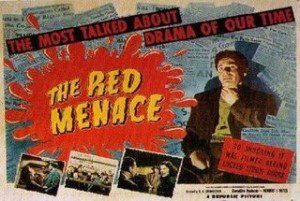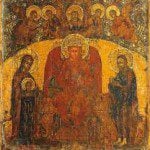 In a June 14th blog entry Archbishop Timothy Dolan of the New York Diocese lamented about the likely passage of marriage equality in the state. As of June 16th the legislation, with several religious exemptions included, needed one vote to pass the state Senate. It has passed the Assembly. Gov. Andrew Cuomo, a Roman Catholic, will sign the bill into law if it reaches his desk.
In a June 14th blog entry Archbishop Timothy Dolan of the New York Diocese lamented about the likely passage of marriage equality in the state. As of June 16th the legislation, with several religious exemptions included, needed one vote to pass the state Senate. It has passed the Assembly. Gov. Andrew Cuomo, a Roman Catholic, will sign the bill into law if it reaches his desk.
The Archbishop equated the passage of marriage equality to Communist social  engineering. The last time he consulted an atlas he wrote, “it is clear we are living in New York, in the United States of America – not in China or North Korea. In those countries, government presumes daily to ‘redefine’ rights, relationships, values, and natural law.” This is a flawed analogy. Despite religious opposition the values, rights, and relationships regarding racial segregation and interracial marriage were changed.
engineering. The last time he consulted an atlas he wrote, “it is clear we are living in New York, in the United States of America – not in China or North Korea. In those countries, government presumes daily to ‘redefine’ rights, relationships, values, and natural law.” This is a flawed analogy. Despite religious opposition the values, rights, and relationships regarding racial segregation and interracial marriage were changed.
The work of Rev. Dr. Martin Luther King Jr. to desegregate America, for example, was widely criticized as Communist agitation – also a kind of social engineering. Religious leaders, including at least one Catholic bishop, publicly opposed him. According to one historian, the end of racial segregation for some white Protestant religious leaders equated to “overthrowing God’s established order.”
In May 1954, U.S. Representative James Eastland (D-MS) announced on the House floor that the “southern institution of racial segregation or racial separation was the correct, self-evident truth.” He added: “Separation promotes racial harmony. It permits each race to follow its own pursuits, and its own civilization. Segregation is not discrimination. Segregation is not a badge of racial inferiority….” Efforts to end it reflected a Communist attempt to undermine “the correct, self-evident truth.”
As I reflect on history, the Institutional Church (Catholic, Anglican, Episcopal, Eastern Orthodox, etc.) has always been late in pursuing social justice. Colonialism and economic exploitation, opposition to giving women the right to vote, centuries of official persecution of our Jewish sisters and brothers, and slavery and segregation were all supported by the Institutional Church. The Catholic and Eastern Orthodox Churches greatly contributed to revolutions in France and Imperial Russia. Both gave moral legitimacy to inept, corrupt monarchies that abused their citizens in multiple ways. These are just a few examples.
In addition, marriage has changed throughout history. War, disease, and rampant crime in early history made having a large family necessary to survive. Women were often considered chattel between powerful families looking to strengthen kingdoms or increase fortunes with blood alliances. Up until recent times marriage had more to do with economic concerns than any fidelity to some natural order. Empowering women with inheritance rights, property ownership, or as noted the right to vote were all resisted by religious institutions.
It is very important to keep in mind that “marriage” has become both a secular and religious word. What the NYS Senate may pass is not a re-definition of the sanctity of marriage. A solemnized marriage cannot exist before God unless a cleric has performed the Marriage Rite. Today, clerics refuse to marry couples all the time. You cannot make a mullah and a rabbi come together to perform a mixed marriage between two people of the Jewish and Islamic faiths. Nor would you be able to require a priest or rabbi to solemnize a same-sex marriage.
According to the Archbishop opposition to marriage equality is about “upholding a truth about the human condition.” What is the truth about the human condition? Let’s not ignore what science has to say on the subject. Nor should we be afraid to explore ways to integrate science with faith. Fr. Pierre Teilhard de Chardin has much to teach us in this area.
Ultimately, the arguments for and against marriage equality are academic. The train has left the station. It’s not coming back. The Institutional Church must now grapple with the changing civil law. More important, however, what will the Institutional Church do to better minister to God’s LGBT and Searching children which it helped to spiritually and emotionally abuse?
© Paul Peter Jesep 2011











